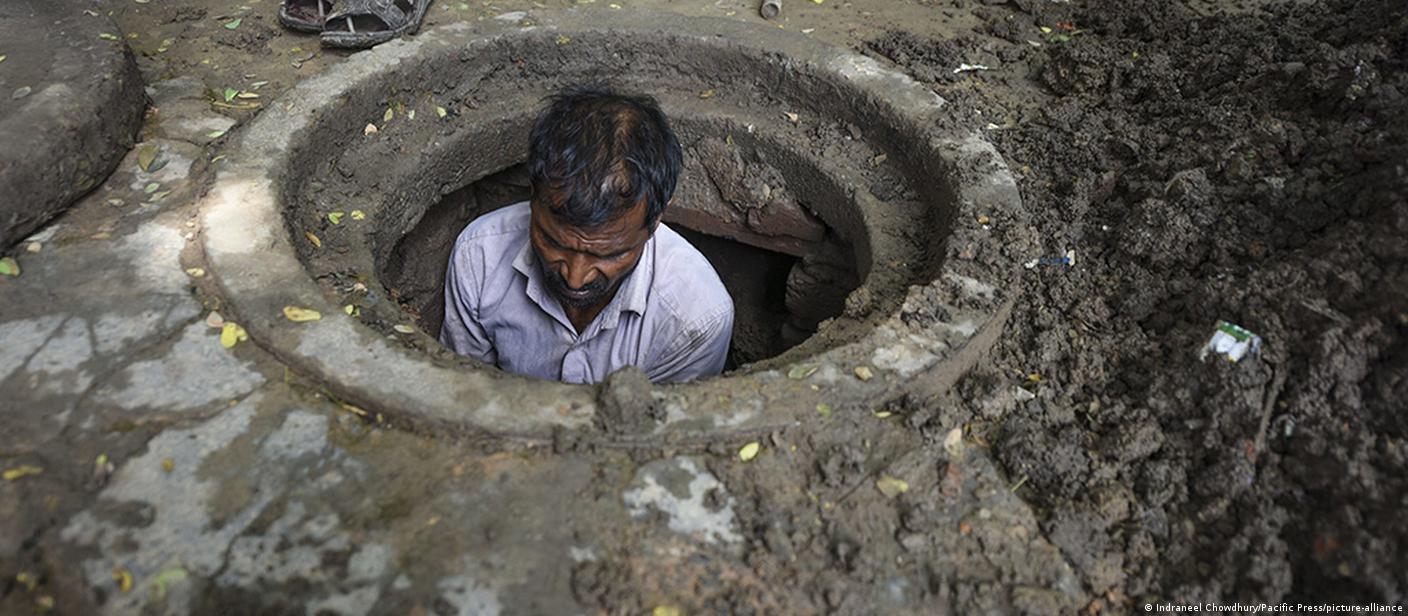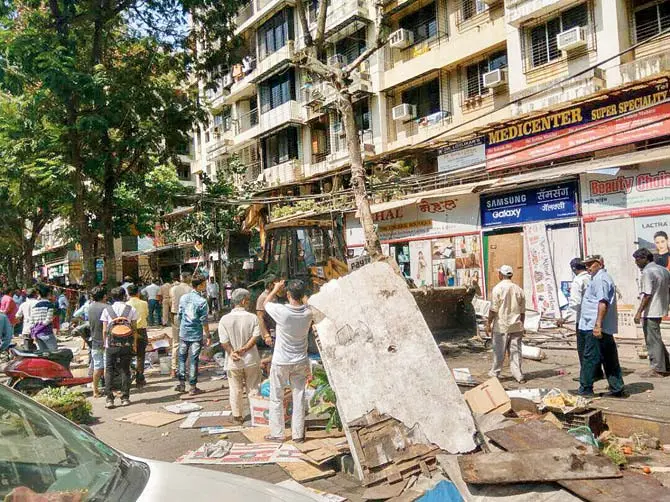The work has been prohibited in the country since the effect of the Supreme Court decision on the Prohibition of Employment as Manual Scavengers and their Rehabilitation Act, 2013. The following act states that no person shall be forced or else engaged or employed as a manual sewer. Based on the report given by Deccan Herald, there are about 58, 098 manual scavengers across India recent by 2022. At the same time, the act implemented the prohibition of manual scavenging in India has been deceased for years.
It was on February 25, 2023, that a bench of justice S R Bhat and Dipankar Datta did hear the petition on the direction to implement the provision of the Employment of Manual Scavengers and Construction of Dry Latrines (Prohibition) Act, 1993. Considering the petitions filed the Supreme Court has updated on the execution of the 2013 Act from its root including the prohibition of dry latrines in cantonment boards as well as the railways.
A family residing in Shahdara, a part of Northeast Delhi, towards the red line area in the Delhi Metro, which was popular in 2018 for their Skill Training Programme conducted for Manual Scavengers, says the majority of people are working under the involvement of municipal corporation and government pay for them. Other than the government-paid workers there are people who are individually willing to carry out certain work for money. The family is provided with food and essentials as well as a daily wage of Rs 100 or Rs 200.
Although manual scavenging in the country is banned under the Prohibition of Employment of Manual Scavengers Act, of 2013, in many parts of the country, the government is providing them with the work. Apart from the work provided by MCD and people are working as sewers for daily wages. In India, most municipalities are not providing sufficient sewage management systems. The sewage workers are required to work underground not provided any safety from the side of government authorities.
A family residing in Shahdara, a part of Northeast Delhi, towards the red line area in the Delhi Metro, which was popular in 2018 for their Skill Training Programme conducted for Manual Scavengers, says the majority of people are working under the involvement of municipal corporation and government pay for them. Other than the government-paid workers there are people who are individually willing to carry out specific work for money. The family is provided with food and essentials and a daily wage of Rs 100 or Rs 200.
Meera, a 57 years old female manual worker, who lives on Street 16, Laxmi Nagar says, she works as a sweeper, toilet cleaner, and garbage collector for 13 years. She works more than three days a week including weekends. Because of the heavy workload without sitting, and walking all day long she suffered leg pain. “I smoke while working to reduce this work pressure“, she added.
Her daughter is studying a computer course in Laxmi Nagar itself however because of the need for money she also works as a manual worker in residences, and streets.
Laxmi Choudhary, a female worker, 35 years old, resides in the Shakarpur area, from a family that is below the poverty line because of the insufficient money her daughter had to quit the course she was studying and start working as a manual worker. Even during the time of her periods, she goes to work for daily earnings to feed her family.
Gender and casteism
Indian Express notes the estimates by several organisations of manual scavengers are women is more than 75 per cent. Corresponding to the data collected on the ground of manual scavenging in the national capital region, the people have reported that individuals from both men and women social classes are part of manual cleaning in which men are frequently used to perform extensive manual scavenging, dispose of human excreta from dry latrines, open drains, and sewers without any protective gear or equipment. The women play a huge role in sweeping, garbage collecting, cleaning roadside sewage cleaning, as well as drying latrines in public spaces.
Urvashi Sood, a student at Delhi University who lives in the area of Shahdara says to FII that the sewers are coming daily to clean the streets and collect garbage. They are making money in order to feed their families. They are not (perhaps) bothered about caste hierarchies rather they are willingly performing manual scavenging and cleaning considering it is the only way to survive and feed their families, and all their children I know are studying in schools and colleges, she adds.
Having said that, manual scavenging is often practised primarily by people belonging to the lower marginalised castes, particularly the Dalits who are considered (erstwhile) untouchables and are discriminated against. People from northeast Delhi report the majority of individuals working in sewers are from Valmiki, a community that resides throughout India, and are mostly categorised in the Northern states of the country under Scheduled Caste and Scheduled Tribes in the southern part of India. While these certain communities are targeted to perform manual scavenging in the country and are often denied access to education, and employment, basic rights of living are extensive in number.
Urvashi Sood, a student at Delhi University who lives in the area of Shahdara says to FII that the sewers are coming daily to clean the streets and collect garbage. They are making money to feed their families. They are not (perhaps) bothered about caste hierarchies rather they are willingly performing manual scavenging and cleaning considering it is the only way to survive and feed their families, and all their children I know are studying in schools and colleges, she adds.
Despite the constitution of India’s abolishment of caste discrimination which helps ensure equal rights for all citizens in the country, people from particular castes are the victim of health-related issues and social discrimination in workplaces even today. Considering the (erstwhile) untouchables in society, they are forced to do manual scavenging with poor safety facilities and hygiene. As per a study conducted in Chennai, of 30 manual scavengers, 90 per cent of the manual scavengers were from scheduled caste communities and the rest were mostly backward class people.
In 2022 three Dalit men were killed while cleaning the septic tanks of a resort in Sri Perambadur in the state of Tamil Nadu cause of asphyxiation. Even today if we visit various places in Delhi such as Shakarpur, and the Laxmi Nagar area we can see men at work, cleaning sewages without wearing gloves or proper dress. At night if we take a round through the streets of Delhi, we can see how the ragpickers are dwelling next to the waste-carrying vehicles without any access to public toilets.
The other side
In the 2022 Swachh Survekshan rankings, the New Delhi area administered by New Delhi Municipal Council (NDMC), was categorised as the cleanest small city in the country. While the area of the national capital region such as Shahdara, Shaheed Sthal, and many parts of old Delhi, is 12 times polluted by garbage bags.
Families residing on the street addressed that garbage wastes are high on the roads. It is polluting and disgusting. The sewage water flows filthy, which can cause various diseases. At the same time, the workers cleaning these polluted sewages and streets are at high risk of diseases such as hepatitis, leptospirosis, and many bacterial infections.
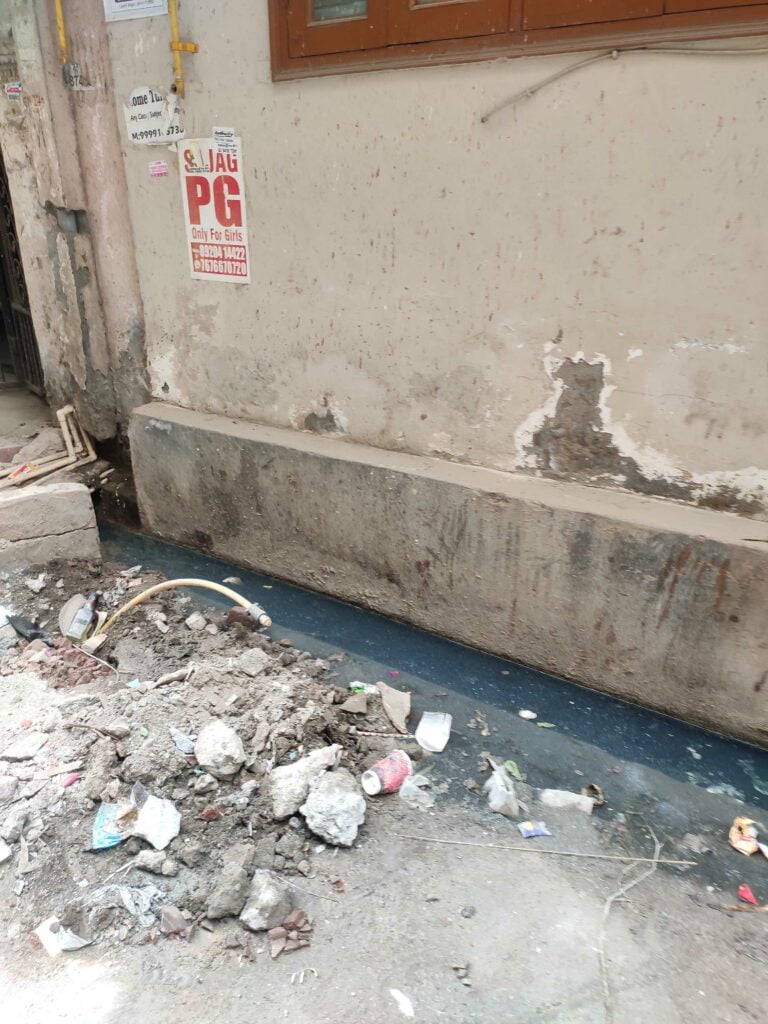
Unnathi, a student who lives in one of the lanes near Shahdara metro station says to FII, “the implementation of machines instead of manual scavenging is a need of time. We see people coming and taking garbage waste, and cleaning sewages with their bare hands without any gloves or anything. When we, a group of people live in the comfort of our homes and throw garbage on the streets for them to collect every morning. These works have become a part of their life.”
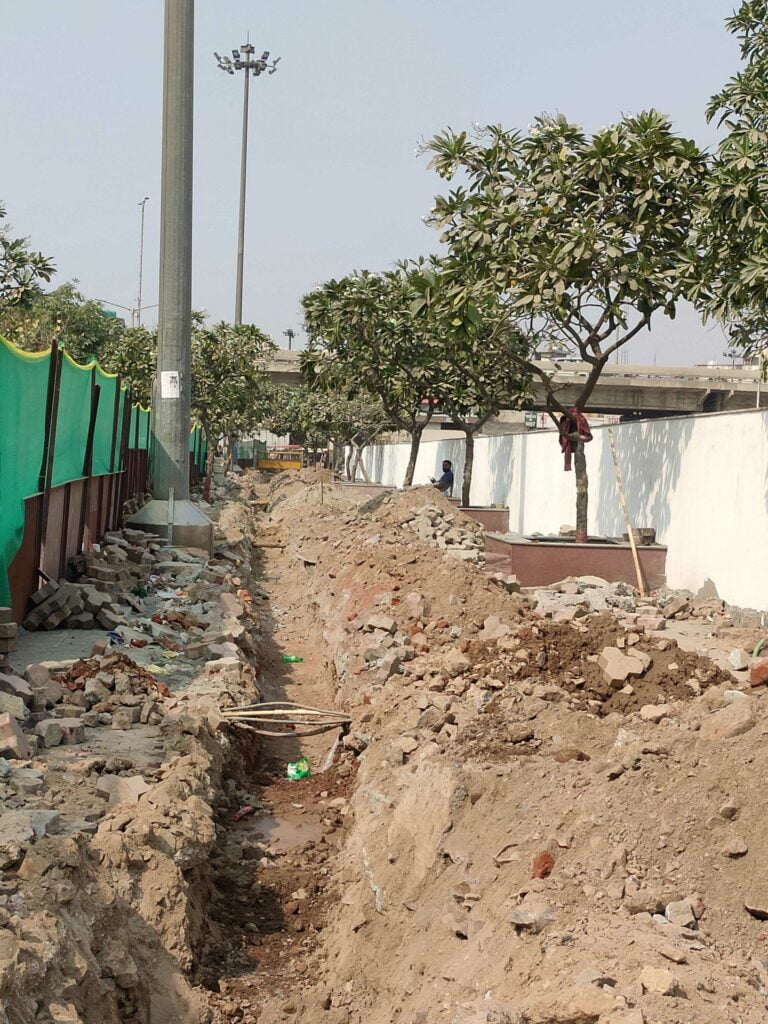
“They are doing it because there is no effective implementation in machinery only. The government should implement such effective strategies to reduce manual scavenging.“, she adds.
Delhi is regarded as the national capital and is known as one of the most popular cities for tourist attractions in the country. The areas covering the yellow line of the metro station, and many connected to government institutions are well-constructed and clean. The majority of Delhi is a shattered piece of land that constitutes of people who are used to living in congested, unclean streets in which the sewage workers have become habitual living the life as a sewer.
Operations on loop
Corresponding to the data taken from different parts of Delhi, that is still prevalent in manual scavenging, sewers, as well as people including students, and elder ones, reported that they are not aware of the fact that manual scavenging is illegal in the country and the decision of Supreme court on the Prohibition of Employment of Manual Scavengers and their Rehabilitation Act, 2013 and the Employment of Manual Scavengers and Prohibition In Construction of Dry Latrines, 1993 are effective. Yet the government authorities such as Municipal Corporation in Delhi are providing manual scavenging-based on sanitation purposes in cities.
“If there is a prohibition act is implemented in the country then why they are providing manual sewers even now“, Sood added.
Bhagawal Singh, one of the sewage workers, 24 years old, presently working on the streets of Laxmi Nagar, says, he is working under Jal Board, Government of NCT, for daily earnings of eight hundred rupees. He was neither aware of the latest Supreme Court decision nor the Prohibition of Manual Scavenging Act, 2013, instead working under the instruction of government authorities.
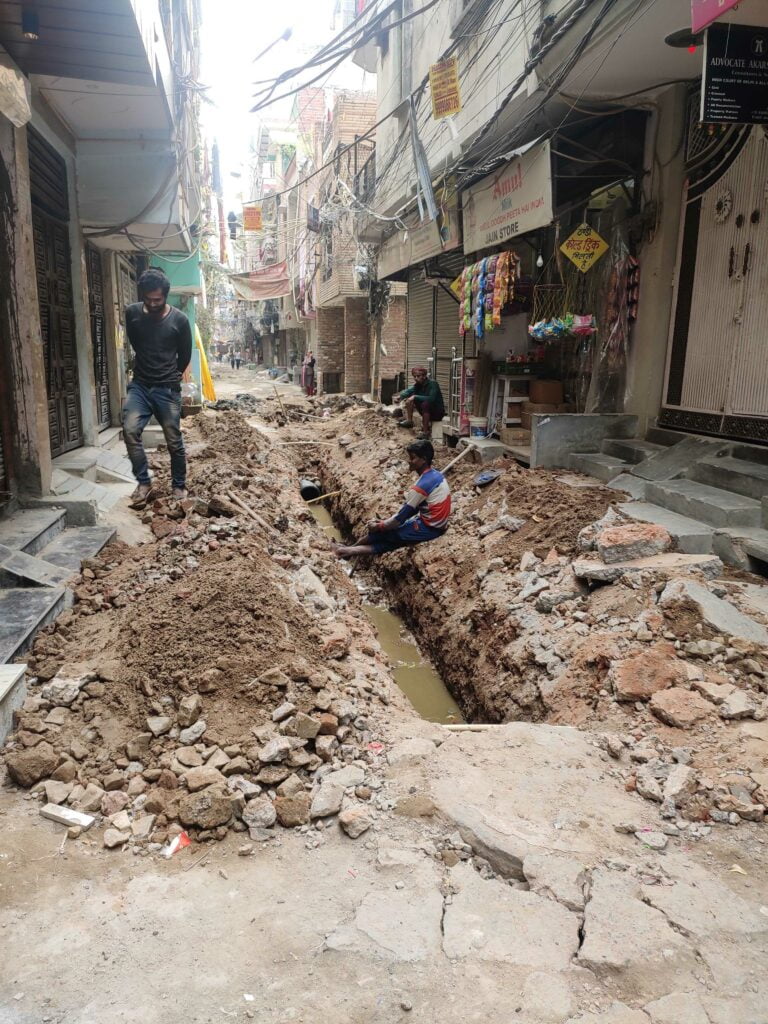
However, in 1955 the introduction of the Protection of Civil Rights Act called for the dissolution of scavenging or sweeping on grounds of erstwhile untouchability in effect, to the latest Supreme Court decision on the undertaking of prohibition in the manual scavenging plea is on the discussion. It is in the convoluting stage that lacks proper awareness among the public.
